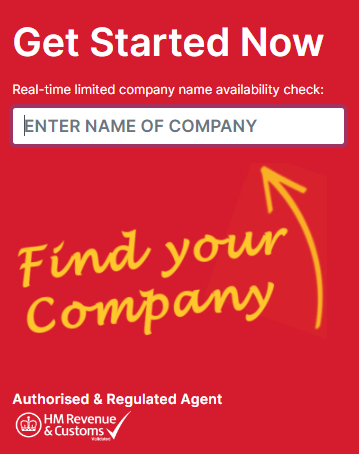Business Planning when starting your own business.
If you’re considering starting your own business, there are countless decisions that need to be made as well as a few critical pitfalls which should be avoided as a start-up. Many of the hundreds of thousands of new start-ups formed each year do not make it past year one, therefore it is crucial to focus your energy towards the correct tasks, particularly in the first year. Your business plan must be carefully thought through, risks must be assessed, and creative thinking is required to make it a sustainable reality.
Here are five things to think about before starting your own business.
1. Business Structure
A key decision to make when starting your own business, is choosing a legal framework to follow. There are two main types you can choose from; a sole trader or a limited company. This choice can impact multiple areas of your business planning, including how much tax you pay and the volume of regulatory measures needed.
The simplest choice with less paperwork and legal responsibilities is to operate as a sole trader since you and your start-up company are regarded as one legal entity. Because of this, you will profit from all sales but also run a higher risk because you will be held accountable for all debts. It does, however, imply that there can only be one business owner, which restricts your ability to obtain financing and, consequently, your sector creditworthiness. As a solo proprietor, your only option for obtaining funding is to form a partnership.
As a limited company, your start-up business becomes a separate legal entity, therefore you are only liable for your shares, with the exception of directors who may also be responsible for guaranteeing loans and large credit agreements. It is seen as the more tax efficient option due to lower corporation tax rates, although it has more complex tax requirements and accounting. It is also much easier to pass on shares in a limited company, which attracts more investments as you are able to sell shares on.
It is important to keep in mind that it is possible to move from one structure to another. In fact, it is common when starting your own business to start as a
sole trader and then form a
limited company later, these steps could form part of your business plan. To incorporate a company,
start by searching for your company name in our easy to use company name search on our home page:
2. Scalability and Growth
Your business plan should include your scalability and growth forecasts. Growth and scalability are often used interchangeably, but have distinct meanings and implications for a company and are important considerations when starting your own business and forming a business plan.
Start-ups must consider scalability, as it is the ability of an organisation to grow its output and income without correspondingly increasing its expenses or resources. As operational needs expand, a well-scalable business can sustain or even surpass its current level of performance. Although it may require a significant upfront investment, it will result in substantial savings in the long run. Achieving scalability happens over time, and requires a company to refine and optimize its processes. A business plan must also have the flexibility to adjust to the shifting demands of its clients, the market, and trends so is a very important factor in your business plan.
Growth is the term used to describe an increase in a company's revenue, profits, or market share over time. It can be measured using sales and both customer and employee head count. By expanding into new markets, increasing existing customer activity, and developing new products, growth can refer to either sustained or intermittent periods of growth for your start-up business.
A scalable start-up business model describes your business plan for growth. Business plans which are most successful tend to be those which can be easily replicated, as they can scale their operations to new markets without unnecessary expenditure. For example, marketing, product development, customer service and deliveries. Optimising scalability is greatly aided by technology, which may automate procedures, manage operations with cloud-based applications, and make effective decisions through data analysis.
3. Finding Staff
A start-up's success can be greatly impacted by its initial personnel. They play a crucial part in determining the corporate culture, growth trajectory, information sharing, and general perception of the brand. It's critical to clearly identify the responsibilities of your employees that must be filled in order to achieve your fundamental of your business plan.
When starting your own business and hiring new staff there are various approaches to use for hiring people, such as managing the process internally or enlisting the help of specialised organisations. Although they save a great deal of time and work, recruitment services come at a significantly higher cost than handling the process yourself. To reach a wider audience, it is crucial to use a variety of platforms when posting job openings. This could involve publishing advertisements in local newspapers or fliers, using professional networks like 'LinkedIn', social media sites like 'X' or 'Instagram', and using employment boards like 'Indeed' or 'Reed.' Attending job fairs, university/college fairs, and networking events in person is another approach to promote positions and your company.
To streamline the interview process, it is always a good idea to set up an initial phone or video call before inviting a candidate for an in-person interview. Having a standard list of questions with a scoring system makes it easier to compare candidates, whilst personalised questions will give you a better understanding of their experience and personality.
As a start-up, it is essential that you register with HMRC before employing staff, and ensure that your employees and yourself meet all of the legal requirements.
4. Risk Assessment and Contingency Plan
There has been a great deal of uncertainty during the past three years, emphasising how quickly and unexpectedly situations can shift. It's critical to evaluate the risks and the potential consequences they may have on your company and business plan so that you can develop and plan to either prevent or lessen these outcomes.
A contingency plan should enable your start-up to continue operating in spite of any changes. It should be a document, that outlines everything you need to keep the business running including information on suppliers, roles, and obligations, as well as cash flow.
The first step when starting your own business is to identify the risks that are likely to occur. To determine which of those is most likely you could use a risk impact matrix or probability chart. Following this, you should create a plan to mitigate these risks and ensure it is stored securely, with multiple back-ups. The plan should be reviewed frequently and updated, when necessary, if it is out of date the plan will not be applicable. It is also vital that every employee is aware of their role and responsibilities laid out in the plan, as well as how to gain access to it.
5. Funding
When starting your own business you will need to consider funding. There are various options when it comes to funding your small business, the most common being; loans, grants and investors.
The three main types of loans to choose from are:
Start-Up loans are intended for new businesses, and often only require a business plan and financial projections rather than information regarding your credit history. A popular scheme is the government-backed ‘Start-Up Loans Scheme’, offering personal loans of up to £25,000 with a 6% interest rate along-side free mentoring.
Traditional loans are more suited to established businesses who can provide financial data , such as profit and revenue, or to those with collateral or a guarantee.
Small Business loans are usually only offered to small and medium sized businesses, and are used for anything from expansion to investment.
Unlike a loan, a grant does not need to be paid back, so is often the most sought-after type of funding for a start-up. The government offers hundreds of grants to small businesses, which in turn reduces start up costs, helping your business to grow. Despite the abundance of grants available, the process of getting one can be very complex, with each having their own set of requirements and stages. Government grants come in multiple forms; reduced costs, free equipment or simply just cash to support growth. Money given to cover your new business’ start up costs is known as a direct grant. This can be used towards training, investment, equipment, expansion and market entry.
There are also three main types of investment:
Crowdfunding is a method of fundraising in which someone asks individuals to donate small amounts of money to help reach their goal. It is relatively simple to set up, and often takes place online using platforms such as ‘GoFundMe’, ‘JustGiving’ and ‘Kickstarter’.
It is important to note that a fee is usually charged to set up a campaign and that some platforms have an all-or-nothing approach, so if your goal is not met the money raised goes back to the individuals.
Angel investors tend to be high net worth individuals who provide seed funding in exchange for an equity stake in the business or for a share of profits. Seed funding is a type of financing raised to begin development, and tends to cover the costs of proposal generation, research and development, and business plan expenditures. These individuals often have a hands-on approach, as they want to see a return on their investment.
After obtaining seed funding, most start-ups will move towards gaining investments from venture capitalists, which will go towards development, market research and the early stages of production. It is similar to angel investment, but on a much larger scale. Businesses will usually have to go through multiple stages of pitching their ideas to convince investors who are acting on behalf of a firm, to buy a stake in your business. Equity investors, are similar in the sense that they obtain a stake in the company by purchasing shares of a company, with the expectation that their value will increase and generate capital gains.
Although starting your own business is not an easy task, it is a rewarding one, and if done correctly could be a success. It is pivotal to have a solid but flexible business plan so that you have the foundations in place for your start-up business to grow as well as ability to adapt and face any challenges that come your way.
This article is information only and has been prepared for general guidance on matters of interest only, and does not constitute legal, accounting, tax, investment or other professional advice or services. You should not act upon the information contained in this article without obtaining specific professional or legal advice. No representation or warranty (express or implied) is given as to the accuracy or completeness of the information contained in this article, and, to the extent permitted by law, Comdal Limited, its members, employees and agents do not accept or assume any liability, responsibility or duty of care for any consequences of you or anyone else acting, or refraining to act, in reliance on the information contained in this publication or for any decision based on it.






















